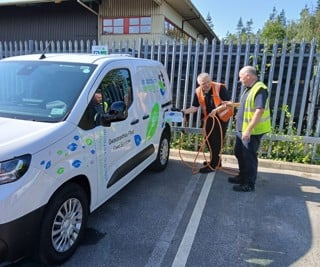Some cars will be redeployed while others will be replaced with a more relevant model for the need.
The net result will see the fleet size reduce by 10 to 20 vehicles.
The ICFM training is not all about the coursework. With classes consisting of 10 to 12 fleet managers, another, indirect, benefit is the opportunity to learn from peers in both the private and public sectors.
“Networking with other fleets is beneficial: you can see other issues and problems and the solutions,” Leach says. “And you can apply some of the things they are doing to your business.”
One area that the network and training helped with was communication. “Interpersonal skills are vital. From the officers on the street to support staff to the chief constable, you have to get buy-in to your proposals.”
Leach has introduced a vehicles working group with operational and senior officers to help him better understand their needs and engage them on vehicle choices. He also sits on the driver and strategy group.
There was talk about disbanding it, but he convinced his bosses to keep the group going.
His biggest challenge is managing risk – not just safety, but also risk to the fleet from changes in policy, funding levels or even from fluctuations in residual values.
Ensuring vehicles are fit for purpose is crucial, while Leach now works closely with the driver training group and is reviewing risk management.
“Everything we do is inherent with risk. You can’t eliminate it, but you can put measures in place to control and tolerate it,” he says.
The ICFM training has seen him go about managing risk in a different way, in particular helping him to plan and produce reports.
He has just completed a risk template assessing the potential impact to the organisation if the fleet team lost more staff.
“It’s all about thinking ‘what if I do that; what are the consequences? Are there benefits? Are there risks?’. This is what you are taught to do.”
Among the initiatives Leach has introduced as a result of his new knowledge are changes to servicing schedules by proactively servicing vehicles based on data, and employing a fuel champion to look at usage and the best stations to fill up at. Both are saving money.




















Login to comment
Comments
No comments have been made yet.